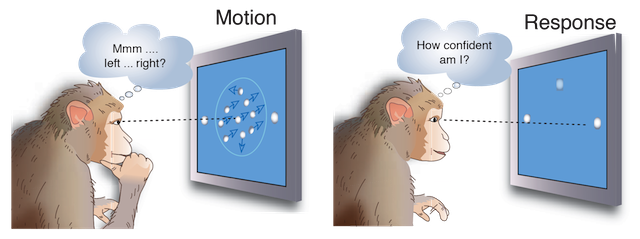About us
Decisions as a Window on Cognition - The Neural Building Blocks of Thought
The evolution of sophisticated brains has freed us from the immediacy of sensation and action by giving us the capacity for flexible decision-making. The evidence we obtain through our senses (or from memory) need not precipitate an immediate, reflexive response. Instead our decisions are deliberative and provisional, contingent on other sources of information, long-term goals, and values.
Principles of brain function derived from the study of decision-making compose the building blocks of human cognition writ large. These principles include the integration of evidence from diverse sources (for example, different senses and memory), the assignment of weights to these sources consistent with their degree of reliability, calculate expected costs and benefits associated with anticipated outcomes, process elapsed time to meet a deadline or to assess temporal cost, and implement rules (such as deciding on what to decide upon) and policies (balancing accuracy against speed).
